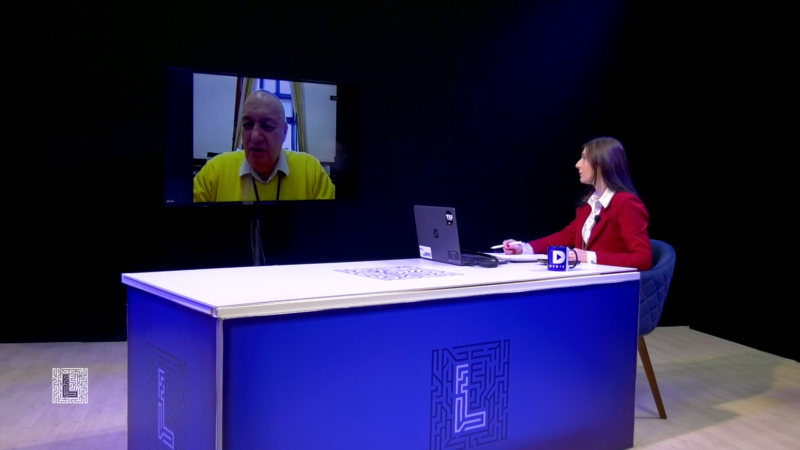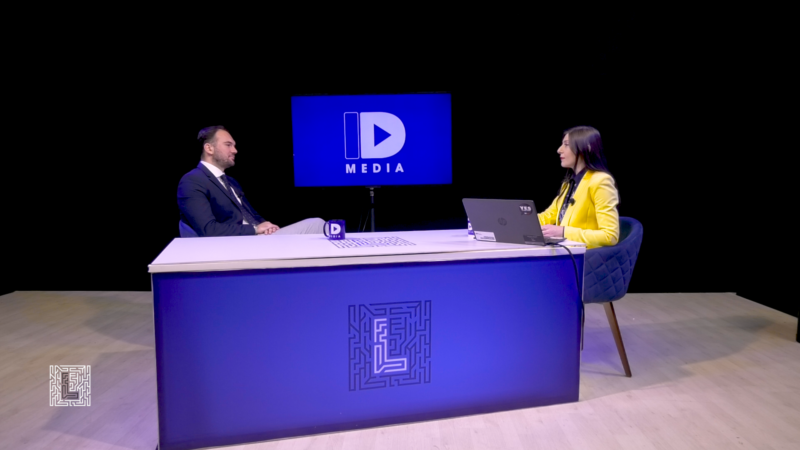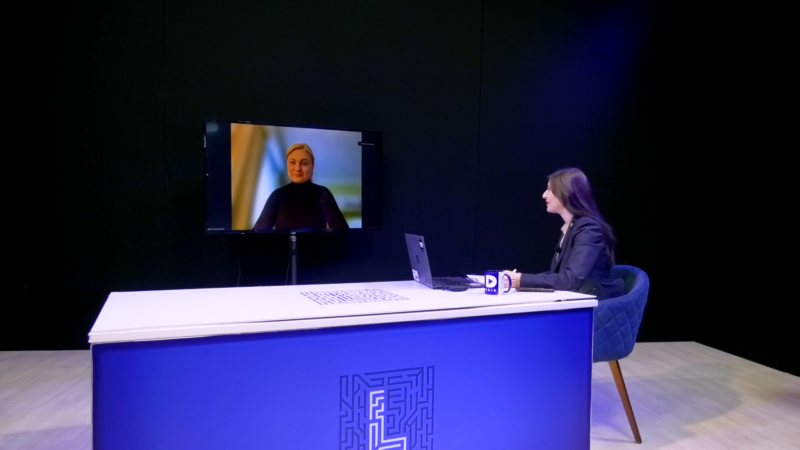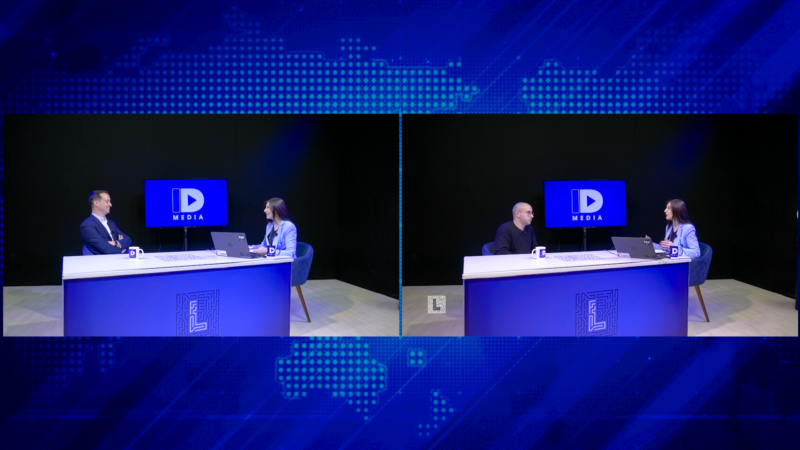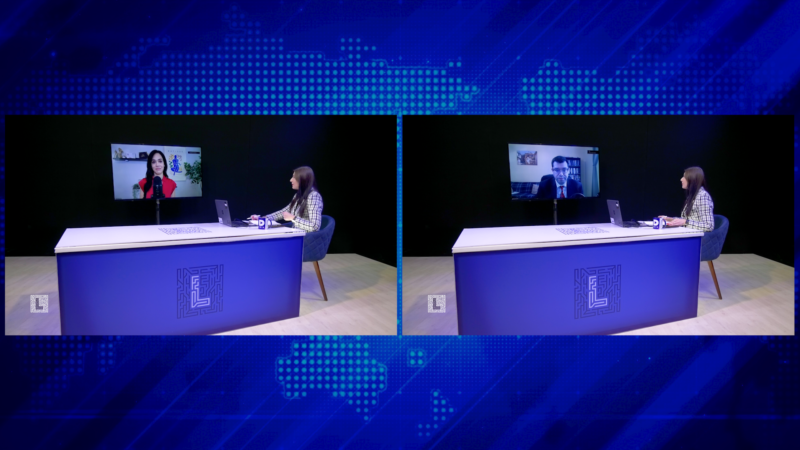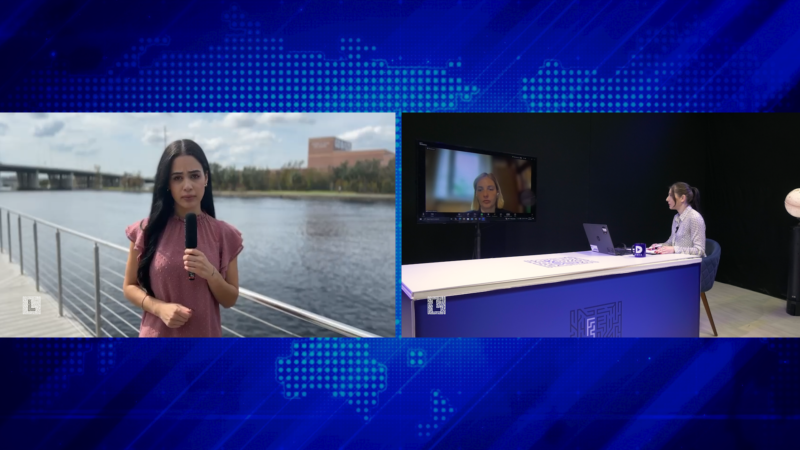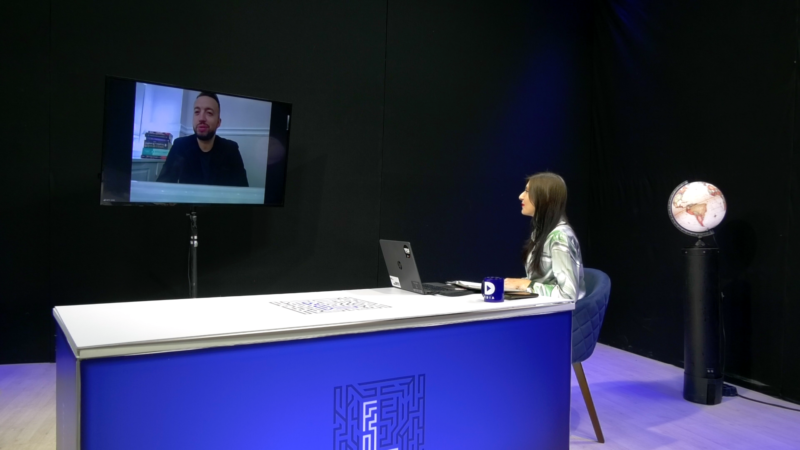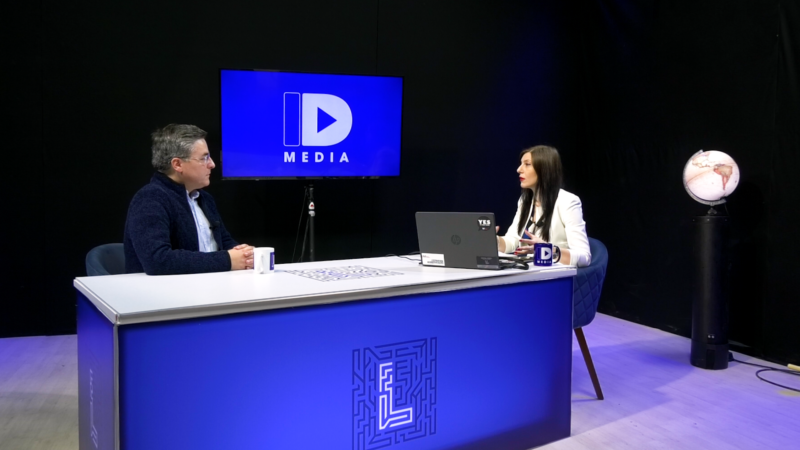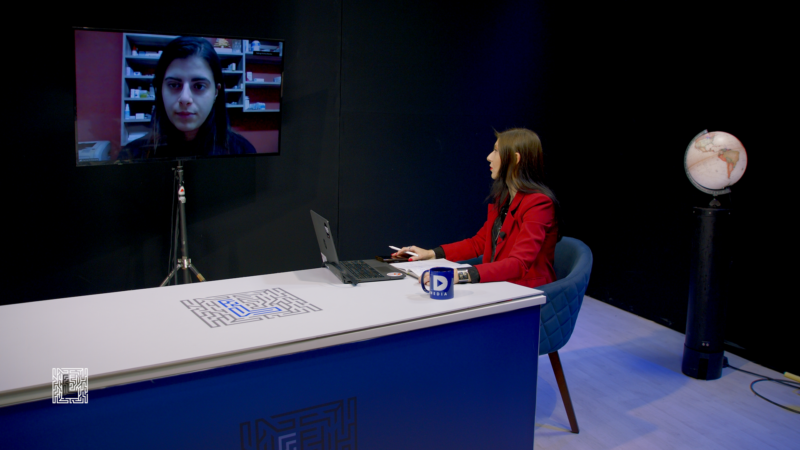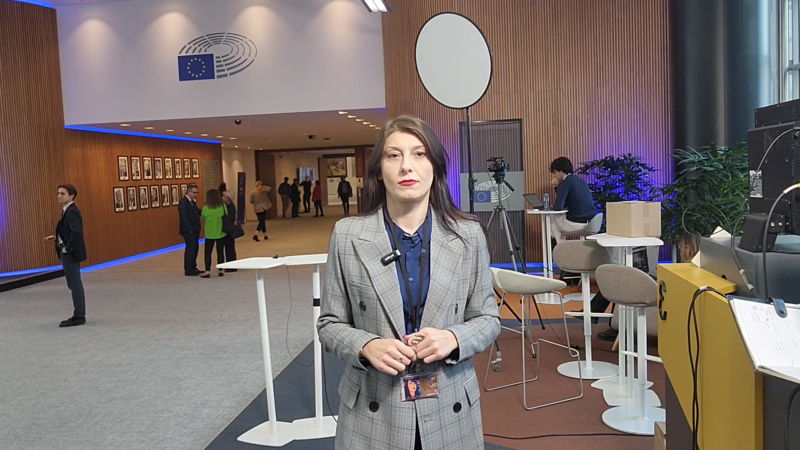LABYRINTH
Shekerinska appointed as NATO's second-in-command - What does that mean for the country?
Interview with security expert and former advisor to the Ministry of Defense, Emir Hasanović
Former Defense Minister, Radmila Sekerinska has been appointed Deputy Secretary General of NATO, making her the first Macedonian woman to hold a high position in the world’s most powerful military alliance. Sekerinska was at the helm of the ministry at the very moment when NATO accession took place, and her appointment can only be positive for our country – believes security expert and former advisor to the Ministry of Defense, Emir Hasanovic. We also discussed future expectations from the Alliance, as well as current European and global security issues.
Watch the full interview.
Kravchuk: Our goal is for Putin to understand that we will not be a "gray zone" between NATO and Russia
Interview with the Ukrainian MP Yevheniia Kravchuk, who was also an observer of the elections in the United States
How and will the Victory Plan of the Ukrainian President, Volodymyr Zelensky, be implemented? What does Trump's return to the Oval Office mean for Ukraine? We talk about these topics with the Ukrainian MP, Yevheniia Kravchuk, who was also an observer of the elections in the United States. The MP firmly believes in Ukraine's victory and says that her country has worked hard to produce its own weapons in the past three years, but she still expects the allies to continue supporting Ukraine. We also discussed Ukraine's desire to join NATO, as well as possible high-level negotiations and possible participation of the Russian Presiden,t Vladimir Putin in the next peace conference.
France is dealing with the new political situation – Serbia is on its feet after the terrible accident in Novi Sad
Analysis of the situation in France and Georgia after the elections and testimony from the protests in Serbia
After the elections in France, a new momentum took place in French politics. The coalition is on glass legs, and new elections are possible only after a year - explains in Labyrinth, the political advisor from the ranks of Macron's party, Mathias Vasquez. Vasquez was also part of the observation mission of the elections in Georgia and gives us more detailed information about the irregularities in the implementation of the elections, which resulted in mass protests.
The young director Leonid Velkovski, who is currently studying in Novi Sad, is also a guest in Labyrinth, and he conveys to us the atmosphere of the mass protests that took place there after the terrible accident at the railway station in which 14 people died.
Watch the full episode.
Trump returns to the Oval Office – Will he stop the wars as he promised?
The Americans have spoken - a triple victory for the Republicans.
The Americans have declared, they are returning Trump to the White House. Labyrinth with appearances from Tampa, Florida and Cincinnati, Ohio analyzed how the new President came to this victory and how that election will affect global geopolitics. Jalyssa Dugrot, a journalist from Florida reports about the atmosphere there. We analyze Trump's future steps on the world political stage with Professor Ivan Dinev from the University of Cincinnati.
Watch the full episode.
Georgia in post-election chaos – USA at pre-election crossroads
Analysis of the Georgia election and a Florida survey on American expectations.
Less than a week until the most important American election in modern history. For Labyrinth, colleague Jalyssa Dugrot from Florida talked to young people about their views and expectations of the presidential candidates.
Georgia, on the other hand, is back on its feet after the elections in which the ruling "Georgian Dream" won. The people, the opposition and the international public do not recognize the results. Hungarian Prime Minister Viktor Orbán is the only European leader who appeared in support of his Georgian colleagues. We talk to Ekaterine Basilaia - director of the Center for Media and Social Research of Georgia about the atmosphere in Tbilisi and the reactions after the elections.
Watch the full episode.
After Albania resolved its bilateral disputes, the fight against corruption is the last step towards the EU
The arrest of the ex-President Meta, the migrant camps and the EU path of Albania in the focus of this Labyrinth.
Albania started a fierce fight against corruption - this is how Albanian citizens see the arrest of the former President, Ilir Meta. With colleague Arber Hitaj from Report TV from Tirana, we discuss the arrest and trust in the Special Prosecutor's Office. Topics of conversation were the migrant camp, as well as European integration, that is, the unblocked road for Albania and the Balkan tour of the President of the European Commission, Ursula Von der Leyen, which started right from Tirana.
After Tirana, Von der Leyen visited Skopje. From the Government, she assured the citizens that expansion remains the focus of the European agenda. Neither the President Von der Leyen, nor Prime Minister Mickoski gave a concrete answer to the question of whether the proposal for delayed implementation of the possible constitutional amendments is acceptable to the EU.
Is the EU changing course on migration and enlargement policy?
Berlin Process – 10 years later
The leaders from the Western Balkans together with their European colleagues marked 10 years since the Berlin Process. In the past decade, not a single Balkan country has achieved its goal of becoming part of the European family. We talk with our colleague Aleksandar Metodijev about the future of the Union, the change in the course of migration and enlargement policy, as well as the role of Germany on the continent.
Watch the full episode.
People in Beirut sleep on streets and beaches because buildings are targeted
An interview with award-winning humanitarian from Beirut, Marina El Khawand
The war in the Middle East is heating up. After the attacks carried out by Iran on Israel, Israel began a heavy bombing of its Hezbollah proxy in Lebanon and continued heavy attacks on the Gaza Strip. In this Labyrinth, we talk to award-winning humanitarian and fighter for equal and free access to medical care, Marina El Khawand.
We discussed the current situation in Lebanon with refugees and people receiving evacuation orders in the middle of the night, the basic needs of water, food and medicine, as well as the role Hezbollah plays in Lebanese society.
Watch the full episode.
Лавиринт ја проследи конститутивната седница ЕУ-МК во Европскиот Парлмент
Лавиринт ја проследи конститутивната седница ЕУ-МК во Европскиот Парлмент кој сега има ново парламентарно мнозинство.
За претседаравач беше избран Карло Реслер од хрватската ХДЗ која е член на мнозинската парламентарна група на Европската Народна Партија. Тој во изјава за Лавиринт вели дека е поддржувач на нашиот евроинтегративен пат и дека Парламентот ќе се обиде да одигра конструктивна улога во надминување на проблемите.
Latest news
- THE TESTIMONIES OF THE VICTIMS ARE AN IMPORTANT BASE FOR BUILDING BRIDGES AFTER 2001
- Amnesties and Transitional Justice in North Macedonia – Reconciliation or Evasion?
- Чаир ја враќа урбаната култура со концертот „Shkupi on its Finest“( Скопје во најдобро светло)
- Analyses of conflict zones and experiences from war hotspots
- Democracy should rely on active and organized citizens – says Ambassador Hulman

